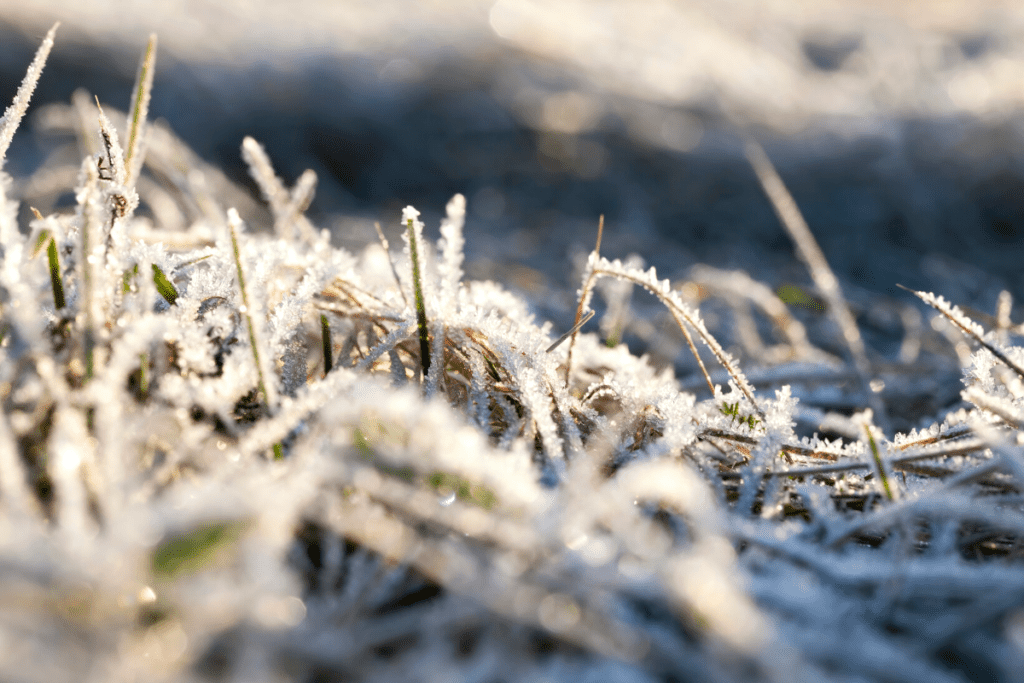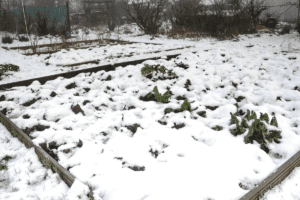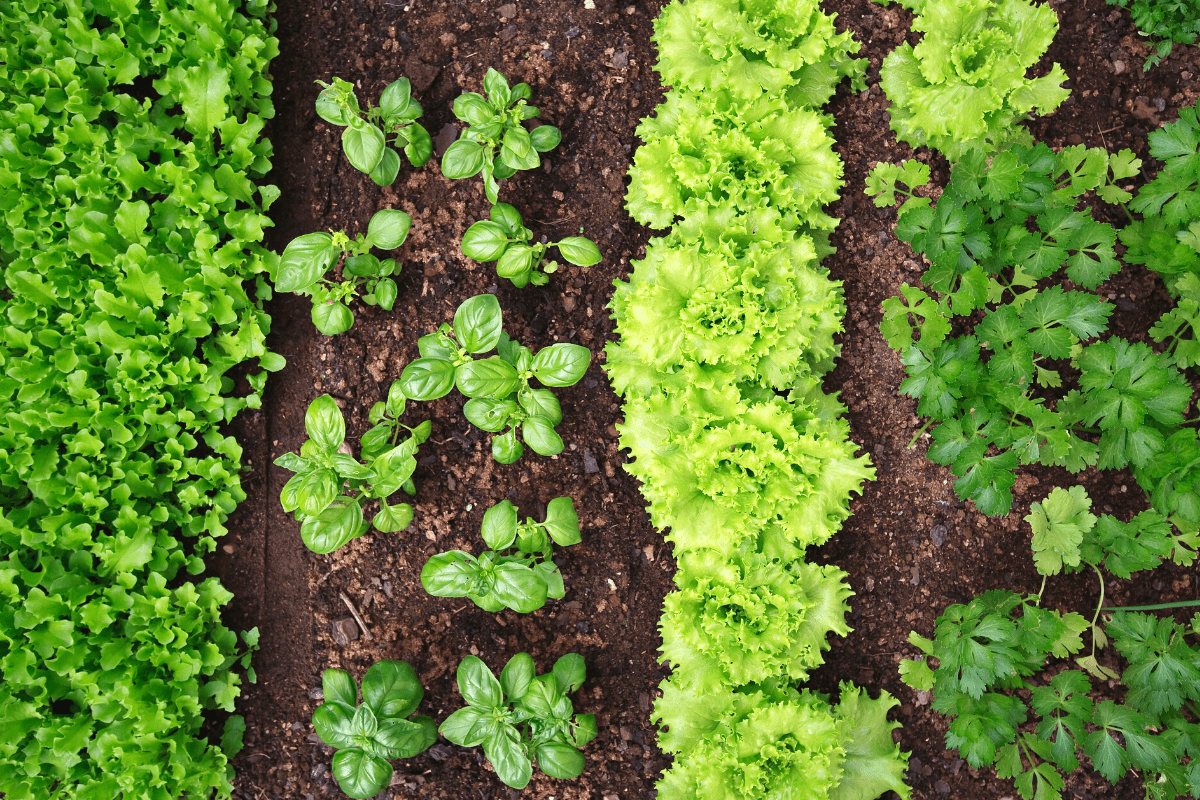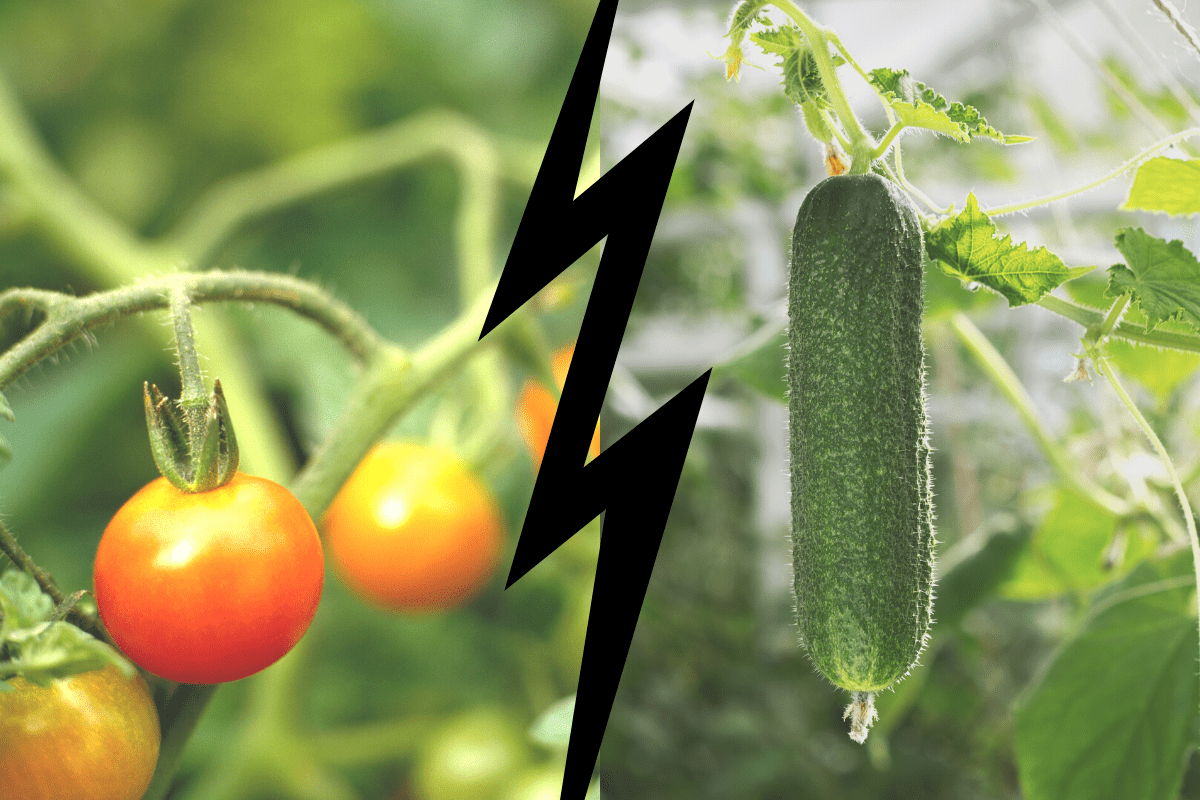At the end of the season, when winter is approaching, there are a few things you can do with your vegetable garden. If you take the time now and prepare the beds for winter, you can save yourself a lot of time in early spring.
You should cover your vegetable garden in winter with organic mulch or some sort of plastic like a tarp. Covering the garden beds has many benefits, such as suppressing weeds from growing, protecting the soil and its microbes from frost, and preventing potential erosion caused by snowmelt.
You don’t necessarily need to cover your vegetable garden if you prefer not to. However, no matter, if you have raised beds or flat bare soil, covering your garden with plastic or organic mulch, is a great way to winterize it. Next spring, it will be in better shape and save yourself time and effort.

How to cover a vegetable garden for winter?
Here are 5 steps on how to prepare your vegetable garden for winter:
1. Remove the last of the harvest
Harvest the last batch of veggies and store them away safely.
2. Cut down all the annual plants and remove weeds
Clear your garden beds from any plants you don’t want to be there in spring.
3. Apply compost
Now is a good time if you want to apply compost to improve your garden soil over the winter. It’s like applying organic winter fertilizer to your vegetable garden.
4. Prune perennial plants
Take care of any perennial plants to make sure they will survive the winter and be ready to sprout again next season.
5. Cover your garden beds
Apply mulch, cover your beds with a tarp or plastic, or sow a cover crop.
Here is a full guide on how to winterize your vegetable garden beds and have them perfectly ready for next spring.

What should I cover my garden with in winter?
There are several options to consider; here are three of them:
In winter, you could cover your garden with mulch, a tarp, some plastic, or even sow a cover crop in late summer or early fall. The choice depends on whether you have perennial vegetables, whether you want to enrich the soil over winter, and your personal preference.
1) Mulch
There are many different types of mulch to choose from to cover your vegetable garden beds in winter. Adding a layer of mulch to the surface helps your soil regulate temperatures and moisture.
One of the best mulches to cover your vegetable garden beds in winter is leaves. A thick layer of shredded leaf mulch over the beds serves as a perfect cover. It will help suppress growing weeds, retain moisture, and provide soil enrichment as it decomposes over time. It also encourages beneficial soil organisms.
Other popular organic mulches used as winter covers are straw, wood chips, sawdust, and pine needles.
2) Tarp or plastic
Covering your vegetable garden beds with tarp material or plastic will mainly kill existing weeds and prevent sprouting seeds from growing. In spring, you will simply have to remove it, work some compost into your soil, and you are ready to plant for the new season.
While inorganic mulch doesn’t enrichen the soil, it still helps reduce water loss, preventing soil erosion and inhibiting weeds.
3) Cover crop
You could get your vegetable garden beds covered with a cover plant for winter as a third option. Late summer and early fall are good times to sow cover crops like winter rye, vetch, or clover.
The roots of these plants help minimize soil erosion, break up compacted areas and increase the overall organic matter in your garden beds. Cover plants add nutrients to your soil and enrichen it with carbon from the atmosphere.
Generally, it is recommended to sow cover crops around 4 weeks before the first frost. That way, they have time to grow their leaves and protect your soil from the cold weather and snow.
When should I cover my garden for winter?
Perennial plants survive best when pruned, cut back, and then covered with mulch in late fall or early winter. The mulch will keep in winter moisture and insulate the root system. It’s best to apply mulch after the ground is slightly frozen, so it will stay firm and keep the roots moist.
If you have bare soil without any plants over winter, it is best to cover it right after the first frost. Allowing the top layer to freeze will kill off some pests and diseases and helps with the prevention of erosion. Covering it for the rest of the winter will protect essential microbes in the soil.
Cover crops should be sown about 4 weeks before the first frost date for your area. That way, the plants have time to grow and develop leaves before the freezing temperatures hit. After the crop is a few inches tall, you could also mulch them with leaves for a bit of extra protection.

Should I cover my raised beds with plastic in winter?
Just like any other garden bed, raised beds can also benefit a lot from a plastic cover in winter. It will provide weed growth suppression, protection from frost for the beneficial microbes in the soil, and prevention of erosion caused by winter rain, wind, and snowmelt.
Winterizing raised garden beds with a cover is essential to keep them healthy and in shape until next spring. You will thank yourself in the next season.
Conclusion
Even though you could do without, you should definitely cover your vegetable garden in winter. Whether you have flat beds or raised beds, perennial plants surviving winter, or bare soil, covering your garden for winter works. Do yourself a favor and make a plan before that first frost hits!
Are you planning to add a couple new beds to your garden for next year? Here is a detailed guide on how to start new vegetable garden beds from scratch, including important information about garden layout planning and crop rotation.







